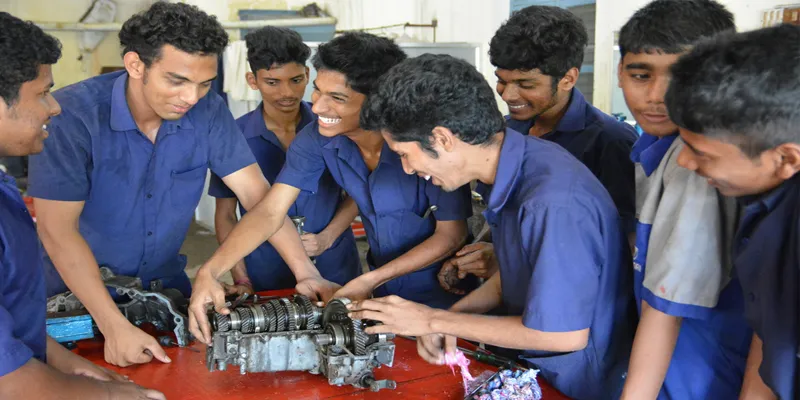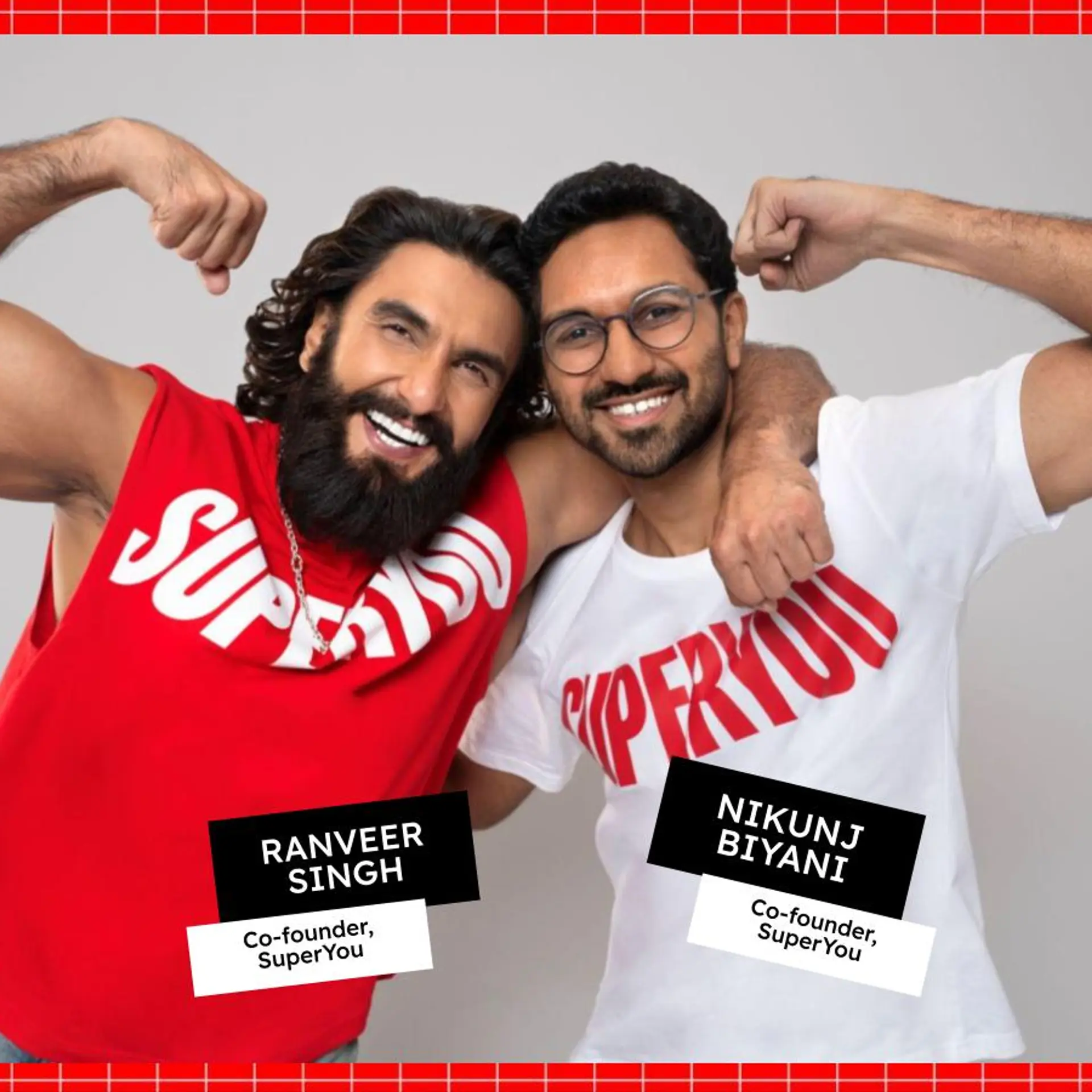Entrepreneurship, education, empathy: Tips from TN Hari, co-author, ‘Winning Middle India’
Investor, mentor, and author TN Hari shares valuable insights on India’s startup ecosystem, opportunities for founders, and market trends. Here are some key takeaways.
TN Hari is the co-author of Winning Middle India: The Story of India’s New-Age Entrepreneurs. The compelling 185-page book profiles a new generation of founders who are unlocking vast opportunities by leveraging platform business models, smartphones, and digital behaviour shifts of Indian consumers (see my book review here).
Hari is an angel investor, advisor to VCs and founders, and mentor to startup accelerators. He is an alumnus of IIT Madras and IIM Calcutta, and has been a part of five successful high-growth startups and exits, including one that launched its IPO on NASDAQ. He is the co-founder of the Artha School of Entrepreneurship, and the co-author of Saying No to Jugaad: The Making of Bigbasket (see my book review here).
See also YourStory’s Book Review section with takeaways from over 350 titles on creativity, entrepreneurship, innovation, social enterprise, and digital transformation.
In this in-depth interview, Hari share success insights on entrepreneurship education, startup ecosystems, and success tips for founders.

Edited excerpts from the interview:
YourStory [YS]: What trends are you seeing in the rise of startups targeting markets beyond middle India to the bottom of the pyramid, for individuals with incomes less than Rs 3 lakh per annum? How can the challenges here be overcome?
TN Hari [TNH]: I think we are only now seeing startups seriously target middle India. It will be a while before new-age tech entrepreneurs attempt to solve problems for those at the bottom of the pyramid.
The starting point for this is to get those at the bottom of the pyramid involved in providing services to those at the middle or top of the pyramid, and thereby putting money into their hands.
[YS]: How was your book received?
[TNH]: Good response so far. People liked the storytelling style, data and insights, and real-life stories of middle India and entrepreneurs building for middle India.
[YS]: How can founders build empathy for middle India customers? Can disciplines like design thinking help map customer journeys and solution opportunities?
[TNH]: In my opinion, empathy for middle India customers is very essential for building products for middle India. And from what we have seen, this empathy comes only from growing up in middle India and experiencing all their problems. There is no shortcut.
[YS]: Many MNCs and large firms are courting startups through accelerators. What are the opportunities and challenges in this approach?
[TNH]: As companies become large and mature, they generally tend to get caught up in their own bureaucracy and lose the ability to innovate. To stay relevant and thrive at this stage, they need to find ways of structuring and empowering teams to cut through the bureaucracy and take some calculated risks and act with speed and urgency.
Courting startups through accelerators is one way of doing this. The downside of this is that the innovation that a startup from the accelerator generates could be available to their competitors too. But, from the larger industry perspective, there is no downside.

[YS]: A number of colleges and universities are launching incubators for startups as well. What are the success factors for faculty to step beyond research and teaching and launch spin-offs or mentor founders?
[TNH]: Some very good startups have been incubated at colleges and universities in India. This is the trend across the world. It's not without reason that innovation hubs in the US are all clustered around universities doing cutting-edge work like MIT, Stanford, etc. It is not uncommon in these universities for faculty to test their ideas by working very closely with startups.
India has a long way to go. Critical success factors for this model are for faculty to be doing some original high-quality work in cutting-edge domains, and a strong industry-academia collaboration. This is still very weak in India.
Academia and industry in India do not collaborate well and the two do not even have sufficient respect for one another and their capabilities.
[YS]: How seriously are startups taking environmental and social responsibility in addition to business goals?
[TNH]: Startups, unless they are focused on ESG, do not necessarily take environment and social responsibility very seriously. This is not surprising. Only if there is a business opportunity and money to be made via ESG would they take it seriously.
We have all seen that getting countries to agree on what needs to be done to address climate change is not easy. However, we have been making good progress, and slowly funds would be available to entrepreneurs for solving ESG challenges.
That is when ESG would be taken seriously, which is when entrepreneurs see business opportunities by addressing ESG challenges.
[YS]: How important is it for tech founders to achieve massive scale, or is there value in sticking to niche markets?
[TNH]: We have a very warped definition of 'scale' and sometimes this forces us to do the wrong things. Every idea and every business does not have to aspire for exponential scale.
While every business needs to solve a real problem, the definition of scale for a business depends upon many factors like market size, being part of a megatrend, founder mindset, existence of a network effect, and availability of low-cost capital. Therefore, there cannot be just one way of looking at scale.

[YS]: What will it take for India to become a hardware powerhouse, and export affordable smartphones, laptops, and accessories to the global market? Have we missed the bus here?
[TNH]: There are people far smarter than me who have shared their views on this. In my opinion, we have missed the bus. We have already gone down the path of being a services powerhouse.
The two (manufacturing and services) require different capabilities altogether. Y2K killed whatever aptitude we may have had for manufacturing excellence.
Manufacturing has been starved of talent in the last 25 years and making up for this is not going to be easy. Creating manufacturing excellence is a slow process. Having said that, we have been able to somehow create excellence in some pockets like our defence and space programmes, but not across the board.
[YS]: Do you see a need for the creation of a 'Startups Association' for Indian founders, like NASSCOM for the IT services sector?
[TNH]: Industry associations are a group of entities with shared interests coming together to lobby with the governments or extend support to member organisations.
Therefore, startups coming together does not make sense. It has to be associations for healthtech, edtech, ecommerce, and so on. NASSCOM also did not embrace all startups of the time; it was formed to represent software and services startups/companies only.

[YS]: We are also seeing the ‘dark side’ of tech through the rise of fraud, hate speech, security risks, etc. How should founders combat such threats, and build moral conviction to stay away from inappropriate use of technology?
[TNH]: Wherever there is money to be made or influence/power to be wielded, it is inevitable that both good and bad people are drawn in.
Founders should operate with the right moral compass and be deeply committed to doing the right things, and influence others to do the same. They should also support and advise regulators in shaping the regulation on these topics.
[YS]: You rightly point to the importance of having social reformers as well, in addition to entrepreneurs. What are some areas where we still need social reform, e.g., less caste discrimination, and more inter-religious harmony?
[TNH]: Capitalism solves problems but invariably creates wars, strife, shortages, power struggles, inequality, and so on. Therefore, the world will always need social reformers.
The nature of reform just keeps changing. Reformers will play a role in creating level playing fields and bringing the world back to peace and equilibrium.
[YS]: Would you say the startup movement has reached a tipping point in India, or is there still a way to go for mainstream acceptance and support for startups?
[TNH]: In my opinion, it has reached a tipping point and startups are already mainstream. The startup energy even in India's hinterland and Tier II and III towns is quite palpable.

[Year in Review 2021] How women entrepreneurs pivoted during the pandemic and saw tangible results
[YS]: How well is entrepreneurship being taught in India these days? How can this be scaled?
[TNH]: Let me keep it brief by saying that it has a long way to go. Our education system has not kept pace with changing skill requirements and employability as a result is low.
However, the New Education Policy (NEP) is expected to address many of the gaps. Time will tell how effective the NEP is.
[YS]: Tell us about some of your activities in the startup space these days.
[TNH]: I am currently focused on building the Artha School of Entrepreneurship. The vision is for Artha to be the world's leading institution for creating large and sustainable businesses. I also get to pursue my interest in investing through the Fundamentum Partnership.
[YS]: What is your advice or tips for the aspiring entrepreneurs in our audience?
[TNH]: Do whatever you like with intensity and passion.
[YS]: Any other parting remarks or comments?
[TNH]: There is no destination. So, enjoy the ride!
Edited by Saheli Sen Gupta







